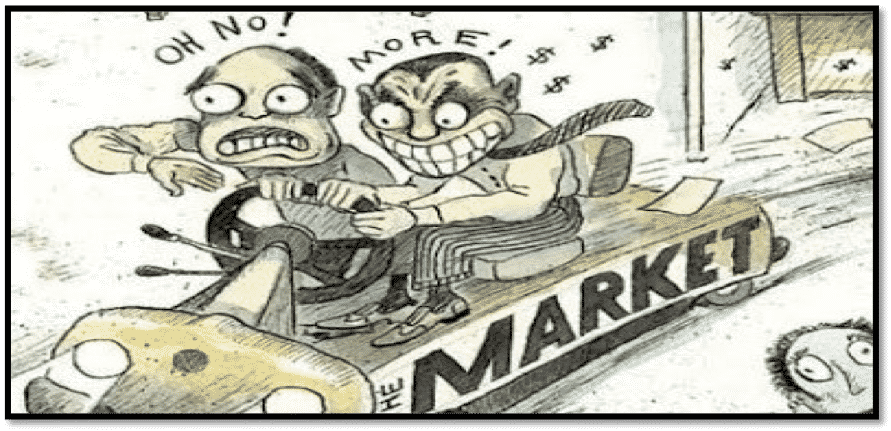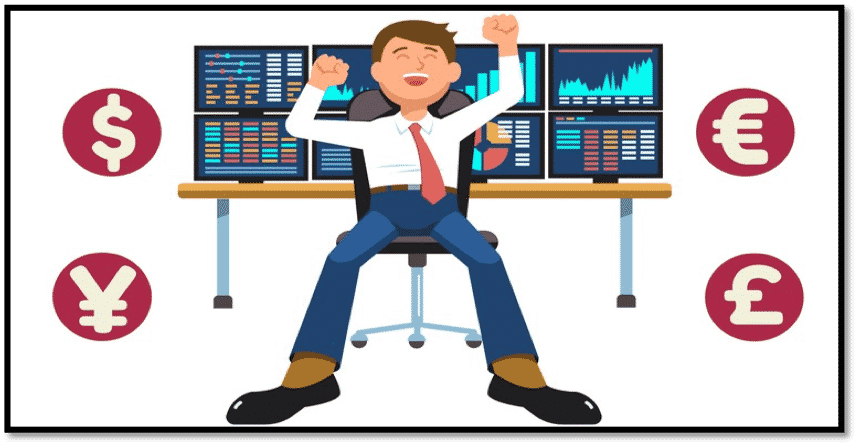In an ideal world, as traders we need to have an almost robotic mindset and become mechanical, unattached from the markets, dispassionate, and most importantly be able to make trading decisions without any emotions impacting decisions. However, there is one big problem with this – it is impossible! As humans we can’t NOT experience emotions, after all our emotions help define who we are.

Let’s start by being honest, as traders whether you are a complete newbie or have years of experience behind you, everybody has experienced the downside of emotions. This may be being too greedy, taking on excessive risk, panicking and closing trades at the worst possible moments, or having your emotions totally overwhelm you and as a result of this you miss out on great trading opportunities! We have all been there. And it is natural to blame our emotions when we have disappointing trades. However, if you let emotions disrupt your trading, you will be in for a tough trading career and if you wish to become a successful trader, you will need to overcome your emotions rather quickly.
I have seen it first-hand; traders can go through a roller coaster of emotions when they are involved in the markets, and their emotions can negatively affect them even if they have years of experience, excellent discipline, and a solid trading plan. Regardless of how successful a trader is, every full-time trader will be able to tell you about days where they have let their emotions get the better of them and 9 times out of 10 when this happens, they would have lost money.
So yes, emotions can RUIN your trading career!
Can we eliminate our emotions?
Eliminate probably not, but manage, of course. Although you cannot completely remove your emotions from your interactions with the markets, you can manage them and as a result of this you will not be controlled by them (as much).
Below, I am going to discuss two very important ways that traders help eliminate emotions from there trading:
1. Preparation
Have you ever heard the saying “Fail to prepare, prepare to fail”? To many trading, may seem like all fun and games, one big adrenaline rush when they hear how profitable trades can be, but what people tend to forget is how traders get to that stage and I can assure you it is not as simple as just switching off and pushing a button, a LOT of preparation is involved.
Just consider if you were to go for an exam and wanted to get a good result, but you did not study for it – you will likely suffer a significant amount of stress due to the fact that you had not prepared yourself. Also, you may not know how to answer certain questions and as a result of this not achieve the best results.
It’s the same for traders, I CANNOT stress this enough we need to prepare ourselves before we even think about entering a trade. Unlike an exam, which can be retaken, once a trade has been placed there is no going back, you will either lose money or make money and ultimately the goal is to make money. Without preparation not only will that trade before like a gamble, but it will cause a trader a lot of stress, which is an emotion we need to try to eliminate, as it can lead to bad decision making and result in a loss of capital.
In order to eliminate stress, traders will generally prepare various potential trade setups and mentally sketch out a few different scenarios before a trade is placed. This could take anywhere between 1 hour – 1 week, dependent on what is being traded and over what time frame. By preparing, however, traders will be able to enter the market not only with confidence but calmly, which can allow them to make rational, stress-free, in-trade management decisions, to maximise their trading results.
2. Have A Checklist
This point falls in line very nicely with the point made above– PREPARE.
You may be thinking “I have a trade plan, why do I need a trading checklist?” Well, there is one huge difference between a trade plan and trade checklist, a trade plan has your entire approach to the markets all mapped out and includes your complete trade analysis process. Whereas a checklist should be PART OF YOUR ANALYSIS PROCESS and sit next to your screens, including some key points that need to be fulfilled before you enter a trade.
Often you will find many LOSING TRADERS DO NOT HAVE AN ANALYSIS PROCESS, and trade solely off emotions and impulse, which will more than likely result in a loss. With a checklist in place, however, you can’t forget to do something, you will plan a trade in the correct order, and the discipline of having a checklist will mentally free you up so you can focus on the specifics of the trade you are looking to take. In the stressed, hectic environment of the markets and on a trading floor, a checklist will force you to stop, re-asses, act in a disciplined, methodical way and give you a reliable plan that can be used under any circumstance.
Below is an example of what a trade checklist could look like:
Remember, this is just a guide so please do feel free to expand on this or create your own. The advantages of having a trade checklist are numerous.
The Bottom Line…
“The key to trading success is emotional discipline. If intelligence were the key, there would be a lot more people making money trading” – Victor Sperandeo
What we can understand is that emotions are usually negative, however, it is important for us to filter out positive emotions from the negative, as some emotions can be very good for us traders.
For instance, our desire to win can force us to work harder and do the work necessary to prevent us from making losses in the markets. Our competitiveness can provide us with a very powerful motivation to carry on even when we have down days and a fear of losing can also do the same.
Altogether, with the correct emotional management skills in place you can really filter out your emotions. Although it is impossible for us to become robots and completely switch off, what we can do is tune down the intensity of them and still experience our emotions but on a level where our mind will be able to make calm and rational decisions.
On a personal note: If you have any trading related questions, I am here to help, so just drop me a message and I will get back to you as soon as I can. Please feel free to check out my other articles. Happy Trading!


